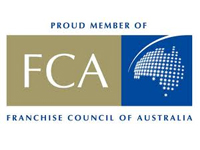
The painful truth about hotel SEO (part 2)
This is the second and final instalment in our two-part series on the massive upheaval in hotel SEO best practices.
Problem 3: SEO has become even more technical and code heavy than ever before!
The days of hiring a website vendor and an SEO vendor to work separately are over because there’s no accountability. The best SEO practices in 2016 are less focused on pumping out high volume, keyword stuffed content distributed to link wheels or article distribution services for backlinks and more focused on collaborating with the development and analytics teams to monitor the website user experience and speed!
Large images and other technical bolt-ons can slow a website down and prevent Google from crawling a page, causing low Google Page Speed Insights scores that can harm rankings. Sharing plug-ins can also leave a site vulnerable to spammy bot traffic, which can pollute referral and organic keyword reporting in tools like Google Analytics or Webmaster tools if not filtered properly.
Ex: Google shows your page speed load time:

Solutions:
• Keep your code lean. Audit the hotel’s website every six months to remove any outdated scripts or pieces of code that is no longer necessary
• Run speed tests. You typically want to get a score of 80 or higher. The Varvy Mobile Testing tool is really helpful too (see screenshot below).
• Google often overwrites meta descriptions in the results if they are too long. Put more emphasis on tags like titles, alt image tags and headers. Never use multiple H1 tags as that will only confuse the search engines.
• Implement canonical tags and language preference tags to ensure that you are not penalized for duplicate content between the desktop and mobile sites.
• Place no robots.txt on pages that you do not want indexed.
• Redirect URLs of outdated hotel offer pages.
• Don’t allow multiple versions of a page with various extensions like .html, .asp. cf. or. php to be created. This will only create a redirect nightmare if you ever rebuild the website.

Problem 4: ranking reports are useless
Ranking well for high volume keywords doesn’t necessarily translate into revenue, and Google doesn’t always disclose which organic keywords lead to a hotel booking. With mobile and personalized local results gaining share, ranking software will show different position results to a user based on their device, location and even previous search history. That’s too many variables for an SEO professional to control and consolidate in a single report.
Instead of requesting ranking reports from your hotel web design or SEO provider, redefine your organization’s metrics for success.
Hotel SEO success should be gauged on the following Key Performance Indicators (KPIs):
• Increase in engaged organic website traffic.
• Improved website conversion rate for traffic coming from organic sources.
• Total direct website revenue or phone revenue generated from organic
channels.
• Higher impression to click-through rates (CTR) from queries (use Webmaster tools to see this ratio).
SEO and Paid (PPC) search will remain a rapidly evolving space as Google continues to adapt to mobile and more personalized solutions for its users. Hotel marketing teams and SEO professionals will have to keep an open mind about ever changing roles, strategy, testing and analysis to keep up.

AccomNews is not affiliated with any government agency, body or political party. We are an independently owned, family-operated magazine.






